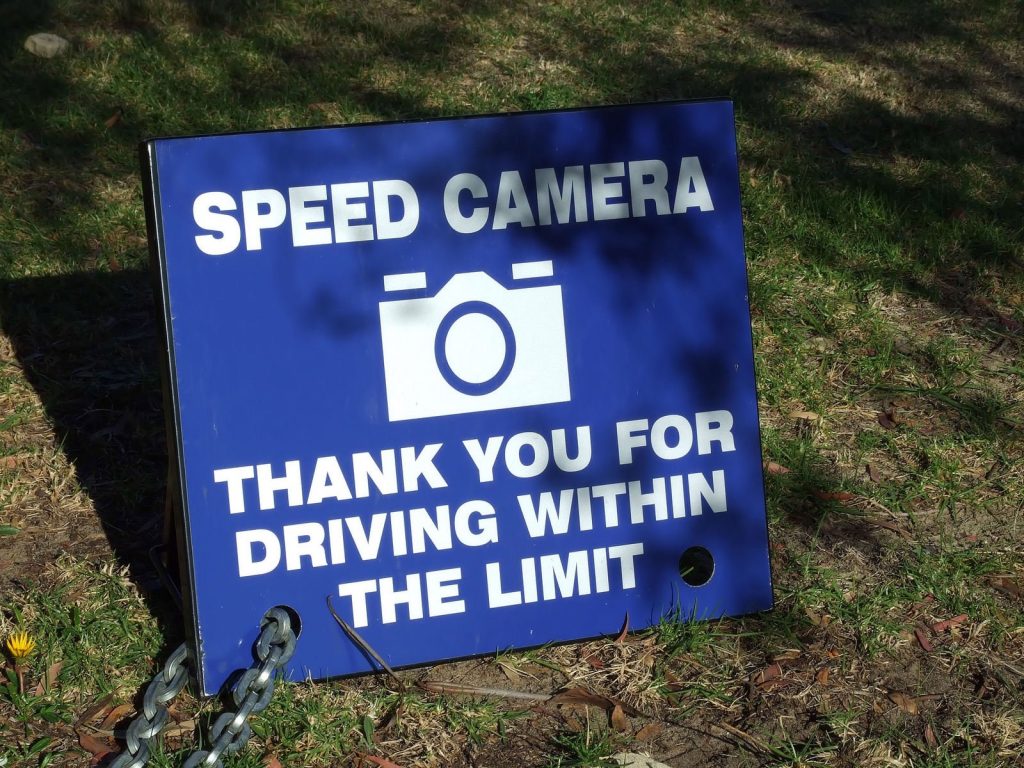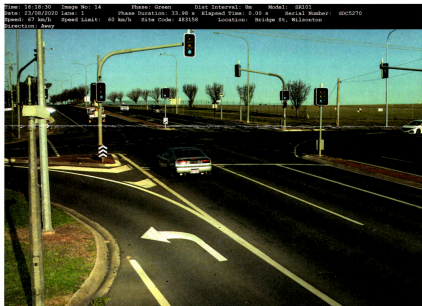“I am a 63 YO pensioner living in Toowoomba, Qld and have recently received a notice to pay A$177 for apparently driving at 67 km/h in a 60 km/h zone through a red light camera. I am to pay before 24/09/2020. I maintain I was only travelling at an indicated 60 km/hr but I look in both directions at any intersection (especially traffic lights) so I was not solely focusing on my speedometer.
I have read your article of July 30 last year: Police ignoring guidelines for speed cameras, and I am looking for some help if possible.
My vehicle was manufactured in 1991 when the tolerance on speedometers was + or -10%. As you further state the Australian Standard also allows a tolerance of + or -10%. Given that the current ADRs allow a similar tolerance on new car speedometers I find it abhorrent that there is (after 2013) NO tolerance for fixed or mobile cameras. As an ex-Army aircraft technician (mostly Blackhawk helicopters), I know that there is always a tolerance on all measuring devices and they must be regularly calibrated so it is ridiculous for the tolerance on cameras to be removed to allow unquestioned fund raising as you highlight in your article.
In 47 years, despite regular travel up and down the East coast during my 22 years of Army service, I have only ever had one minor car accident at 16 (1973 in S.A., full license at 16) with no dangerous driving or other serious offences. As per the attached photo it is a 4-lane divided road with no traffic but I lose a demerit point for speeding and get this huge fine!! Is this in the interest of Public safety??
My request is 1) How do I check the Calibration date or the NSC number for the fixed camera and 2) How do I check the legality of the camera site in regard to 6.2 of the guidelines? Shouldn’t these both be open for Public scrutiny?
Any guidance would be most welcome.” Dan, Qld
Hi Dan.
My commiserations for becoming one of the increasing number of drivers being caught for minor (and usually unintentional) breaches of the road rules.
Unfortunately, your options in this case are limited.
Let me address your points in order (on the understanding that I am not a lawyer).
“My vehicle was manufactured in 1991 when the tolerance for speedometers was plus or minus 10 percent”
It is my understanding that that ADR still applies a plus or minus 10 percent tolerance to speedometer readings (although my most diligent research has been unable to confirm this). You are perfectly correct that there is always a tolerance on all measuring devices and that they must be regularly calibrated. In fact, it is part of the operating procedure for all police departments that mobile speed detection units be calibrated and tested on a regular basis. However, a fixed speed camera is less likely to be inaccurate or have suffered mistreatment that would cause it to misread a speed. As for gaining access to an NSC number or record of calibration, it is unlikely to be provided to you without considerable effort on your part, perhaps even to the extent of invoking Freedom of Information rules, and that would be time consuming and expensive. If you were to defend the offence in court, you would be able to demand the record of calibration.
Interestingly, my contacts within the Road Traffic Police indicate (unofficially, of course) that fixed speed cameras and mobile speed detection devices do allow a margin of error. While it cannot be confirmed, I am informed that mobile speed detection devices (or their operators) will usually overlook speeding by up to 6km/h over the posted limit. I have also been informed that fixed speed cameras will also not activate unless the speed is more than a certain number of km/h over the limit (but again, I have been unable to confirm this). On the other hand, there have been numerous documented cases where drivers have been penalised for as little as one or two km/h over the limit (particularly in Victoria).
A vehicle that was manufactured in 1991 could display a considerably greater speedo inaccuracy than plus or minus 10 percent. Most new cars have their speedos calibrated so they display a higher speed than the vehicle is actually travelling at. But not all. Many European brands display a very accurate speed readout. Normal wear and tear on your vehicle, or the fitment of different wheels and/or tyres from the original equipment, could well affect the reading of your speedometer. It is possible to have your speedo accuracy tested (but there’s another expense!) If that testing showed that your speedo was inaccurate (i.e. showing 60km/h when the speed was actually higher), you may have a defence in that you were, in all good faith and with all the information available to you at the time, travelling at the speed limit (“an honest and reasonable mistake”). However, I suspect a court (or prosecutor) would argue that it is your responsibility to ensure your car was in good operating condition, including having an accurate speedometer.
“In 47 years … I have only ever had one minor car accident at 16 with no dangerous driving or other serious offences”
It used to be that a good driving record often meant minor traffic offences were withdrawn. This is no longer the case. Were you to appeal against your fine and loss of demerit points, it is almost certain the response would be that there is never, under any circumstances, any excuse for exceeding the speed limit and that it is the driver’s responsibility at all times to be in control of the vehicle. Unreasonable, I know, but that’s the way the bureaucratic mind works. I know of numerous occasions, in various States, where people (including myself) have appealed against minor offences and had their appeals rejected out of hand.
“As per the attached photo it is a 4-lane divided road with no traffic but I lose a demerit point for speeding and get this huge fine!! Is this in the interest of Public safety??”
I’m sorry to say, but this has absolutely nothing to do with public safety and everything to do with revenue-raising. As you rightly point out, you were travelling along a four-lane divided road with no other traffic or pedestrians in sight. The light is clearly green, so you weren’t running a red light. Nobody was put at risk, but there is no room in this argument for common sense. According to the authorities, you were breaking the rules and need to be penalised.

So, what’s your best course of action?
First of all, think yourself lucky you’re in Queensland. $177 is a not insignificant sum, but in other States, your fine would have been two or three times more severe (and in South Australia, a $60 Victims of Crime levy added to it). Small compensation, I know. However, since the penalty is “only” $177, defending yourself against the offence will cost you far more than simply paying up. Of course, that’s what the authorities rely on – if everyone challenged their speeding and parking fines, the Courts would be overwhelmed.
Should you feel so aggrieved that you wish to challenge your fine, that is your right. You can elect to have your case heard in Court. In our story of June 20, 2019, we suggested accessing the advice to be found at Aussie Speeding Fines (http://www.aussiespeedingfines.com/) and following their step by step directions. Be warned: it will take diligence, considerable time, no little frustration and quite some expense. Before deciding on that course of action, we would strongly advise seeking legal advice (more expense!) and deciding if you need that much stress in your life.
Let us know what you decide and how you get along.
We wish you all the best, and for what it’s worth, we think the system stinks.
You may find more useful information from earlier seniordriveraus stories here and here
